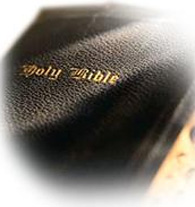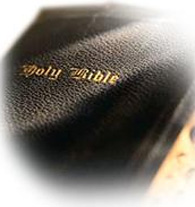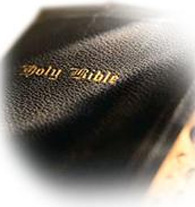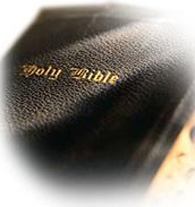Sure sharply she shrills. That squealing shrewd. She is getting hysterical. She is getting desperate. I am talking about Christian church's reactions to the suggestion that in time to come 'the population will understand' that lesbian and gay people are 'born that way but they are like you and me'.

About a week later, The Church of our Saviour circulated two articles which selectively misquote research papers and misrepresent the researchers. Then Cornerstone Community Church declared war. Mobilising his 'LoveSingapore' connection of mostly Pentecostal churches, Pastor Yang Tuck Yoong gathered a group of about twenty Christians on July 17, detailed a media action plan and issued this battle cry:
'We cannot stand idly by. Homosexuality is a sin and it is far more rampant, militant and organised than most of us actually believe it to be. The battle lines are now drawn and it is time for the Church in Singapore to rise up and make a stand.'
On July 19, the Congregations of the Church of our Saviour had an impromptu prayer moment 'against the gay issue', while a visiting preacher the Rev Dr Stefan Sos ranted on a diatribe of how the Canadian Church is now being persecuted by gays. In reality, one of his Bishops is currently being persecuted by an international coalition of traditionalists for allowing gay unions.
Again, on National Day itself while the country celebrates, member churches of the Coalition known as LoveSingapore will be up in arms and having prayer meetings which involve 'declarations' of Singapore as a theocratic state. No doubt the word 'homosexual' will be easily recognised in the speaking in tongues.
Substance of drama with military fetish thrown in, but how do we exactly respond to such crass imitation?
One needs to take an insider's look into Church politicking to understand what is really happening. And I have to admit, I ache for the Christian churches.
Churches generally try to be altruistic and preach messages of love as far as they understand it. It is unfair to brush them over with a single accusatory 'homophobe'. Even many who brandish their 'love the sinner but hate the sin' slogan do try seriously to live up to those standards. It is after all a Christian nun Sister Theresa Seow, heading the Inter-Religious Organisation, who called the Singapore anti-gay lobby 'unchristian'.
Former Methodist Bishop the Rev'd Dr Yap Kim Hao wrote to the press and said 'I have come to see them as normal human beings even though their sexual orientation is different from mine.' There is at least a range of opinion even when another Methodist minister the Rev'd Dr George Wan wrote that '[he] is not condemning homosexuals and lesbians. We should sympathise with them and help them, as we do with drug addicts.' However Christian churches are becoming victims to the pressure mechanisms of fundamentalist groups and this diversity of approaches is in danger of being streamlined into paranoia.

Mainline denominations and these fundamentalist groups make unnatural bedfellows. The latter makes no qualms about stealing members from the former and some fundamentalist leaders have created quite a scene in splitting members from mainline churches to form their own sect. (Now how many of the Seven Deadly Sins have we counted?) One of the noisiest anti-gay propagandists in Singapore has done exactly such a thing. Fundamentalist groups are also expanding in leaps and bounds with their quick, easy and fast answers to life's most complex questions and promises of prosperity and health to their adherents.
These fundamentalist groups have been most vocal in their anti-gay rhetoric and they are pressurising mainline churches into a forced stance on the homosexual issue before they are ready to deal with it.
Anglican Bishop of Singapore the Right Rev'd Dr John Chew claimed that there is a 'common perspective' on the issue of homosexuality among the churches. This is precisely the weakness of the position that they are cornered into; for this common perspective is the lowest common denominator of diverse opinions that rests on an abstract 'incompatibility with Scriptures'. Bare common denominators do not represent the fullness of informed development on an issue.
Methodist Bishop Robert Solomon and the President of the National Council of Churches of Singapore, during a 1998 Symposium Homosexuality and the Church, showed awareness of the multi-layer additions to that common perspective. The Church should avoid 'catastrophising' homosexuality - there are other sins too, such as greed and pride. He concluded the symposium with the thought that those who proverbially threw the stones 'would be judged'.
When the National Council of Churches of Singapore (NCCS) issued their statement on July 29, the approach was cautious, measured and predictable. It eschewed the militancy of the group from LoveSingapore, led by Pastor Yoong and instead firmly stated that homosexual acts are sinful, but affirmed that homosexuals should 'not be discriminated against in areas such as employment'. It is basically in agreement with the present government policy with the boundary marker placed on 'no more change'. The document is a useful feedback to the government but I wonder how much weight it carries with lay-people. Obviously the LoveSingapore campaign is more likely to sway emotions and find more popularity among the masses compared to the top-down official statement from the NCCS. There is still a danger for the gay debate to degenerate into hate mongering.

Gay people should remind these Christians that a common denominator can cripple their ability to address these issues and they need time to develop an authentic response. And they have the time to do so. Contrary to the lies of the fundamentalist agenda, a change in government policy regarding gay people in civil service will not make a nation a constitutional monarchy with a Queen on his throne in any near future.
Gay Christians should, given the opportunities promote dialogues between groups of different interests. While many of the protestant churches are of the Evangelical bent, they are willing to consider the issue in the light of Christian scriptures.
On July 27, a pastor at a Church famous for historical anti-gay milestones preached that the 'Sin of Sodom' was not homosexuality but sexual immorality and that homosexual acts are not worse than adultery and fornication. While not exactly a gay-friendly sermon, it was significant because it challenged the dominant idea among most Christians that God vapourised two cities because of homosexual acts.
While the NCCS may declare that 'the Church has historically and consistently held the view that the practice of homosexuality is clearly incompatible with the teachings of the Christian faith', it glosses over the fact that many esteemed theologians are challenging this view. Archbishop of Canterbury Rowan Williams finds nothing wrong with faithful same-sex relationships while Singaporean Professor Seow Choon Leong of Princeton Theological Seminary admitted that he has to rethink and reread Scriptures.
Honest Christians need not be slaves to prevailing prejudice and they can be engaged with some Bible-speak. After all if God did inspire the Christian scriptures, God certainly has a sense of humour - we do hear many fundamentalists quoting 'St Paul's Epistles to the Romans' on how homosexuality is against nature and incurs the wrath of God, but little do they know that the real purpose of that passage is not exactly on their side. St Paul, with the intent of castigating the self-righteousness of some Jewish Christians painted a picture Greek religious worship. He described how these Greeks, instead of honouring God, decided to worship idols and how such unnatural obeisance led on to the unnatural religious rites during which unnatural sex is performed as heterosexual men and women engage in same-sex temple orgies. And just as St Paul has raised the righteous indignation and revulsion of his Jewish audience, he declared his readers as sinful as the Greek and damned them for being judgmental. Such irony. The Christian scriptures can be on our side.

We will also have to somehow ask mainline churches how far and how much they should allow themselves to be transformed by the vision of fundamentalist sects. For when the homosexuality issues calm over they will pick on another group with whom they disagree. Developing habitual reactionist behaviours to controversies will only edge them to a corner of irrelevance, a cycle of embitterness, and a danger to a multi-cultural society. Look at the Anglican Church in Sydney - even the Jewish community had to call on Anglican leaders to restrain their followers, and that after the Cathedral dean said 'different religions cannot all be right. Some, or all of them, are wrong. And if wrong, [they] are the monstrous lies and deceits of Satan - devised to destroy the life of the believers'. This was years after they hounded gay parishioners out of their pews.
And gay communities will have to stop banding all Churches into one monolithic group and label them bigots - for it might turn out a prophecy that fulfills itself. Churches have a variety of opinions that should be met with a range of differentiated response to allow a mature answer to emerge from polite dialogue. This is the only permissible course of action, for if anything, September 11 has taught the human family that a dynamic ambiguity of respect and love is far more important than a zealot's claim on dogma.
Andrew works in a Methodist Institution, attends service at the Anglican Cathedral and gets plenty of information on Church politics over the coffee table. Sometimes he contemplates writing a screenplay on religious excesses which should beat 'Queer as Folks' hands down.
